12 hacks to create the best in-flight meal
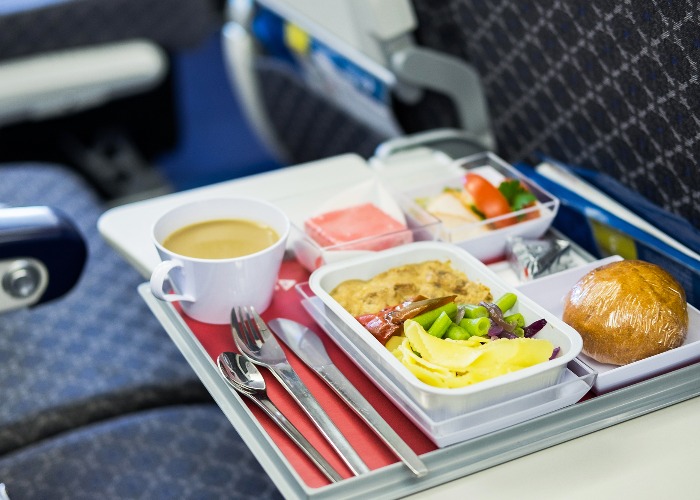
How to arrive at your destination feeling satisfied and refreshed rather than bloated and disappointed.
There’s no getting away from the simple fact that an economy meal on an aeroplane is not going to be a Michelin-star experience or incredibly healthy for you. But with a bit of knowledge and effort, there are ways to make it a much better dining experience. Here are 12 tips on how to make it the best it can be.
1. Pack your own snacks
Plane meals are saltier than food you’d normally eat, to account for the numbing effect altitude has on your taste buds. Add a packet of salt and vinegar crisps or salted nuts into the mix, and you’ll be over-loading your system with sodium. Take some salt-free snacks – such as fruit or energy balls – in a bag with you instead.
2. Take some fresh vegetables
Plane meals tend to be simple and err on the side of comfort food. If you’re lucky, it might come with a salad but they’re often laden with oily dressings. And, generally speaking, any vegetables in the hot meal are cooked to the point of incineration. Cut, raw vegetables will make the meal seem fresher, so take a small zip-lock bag of red pepper or carrots.
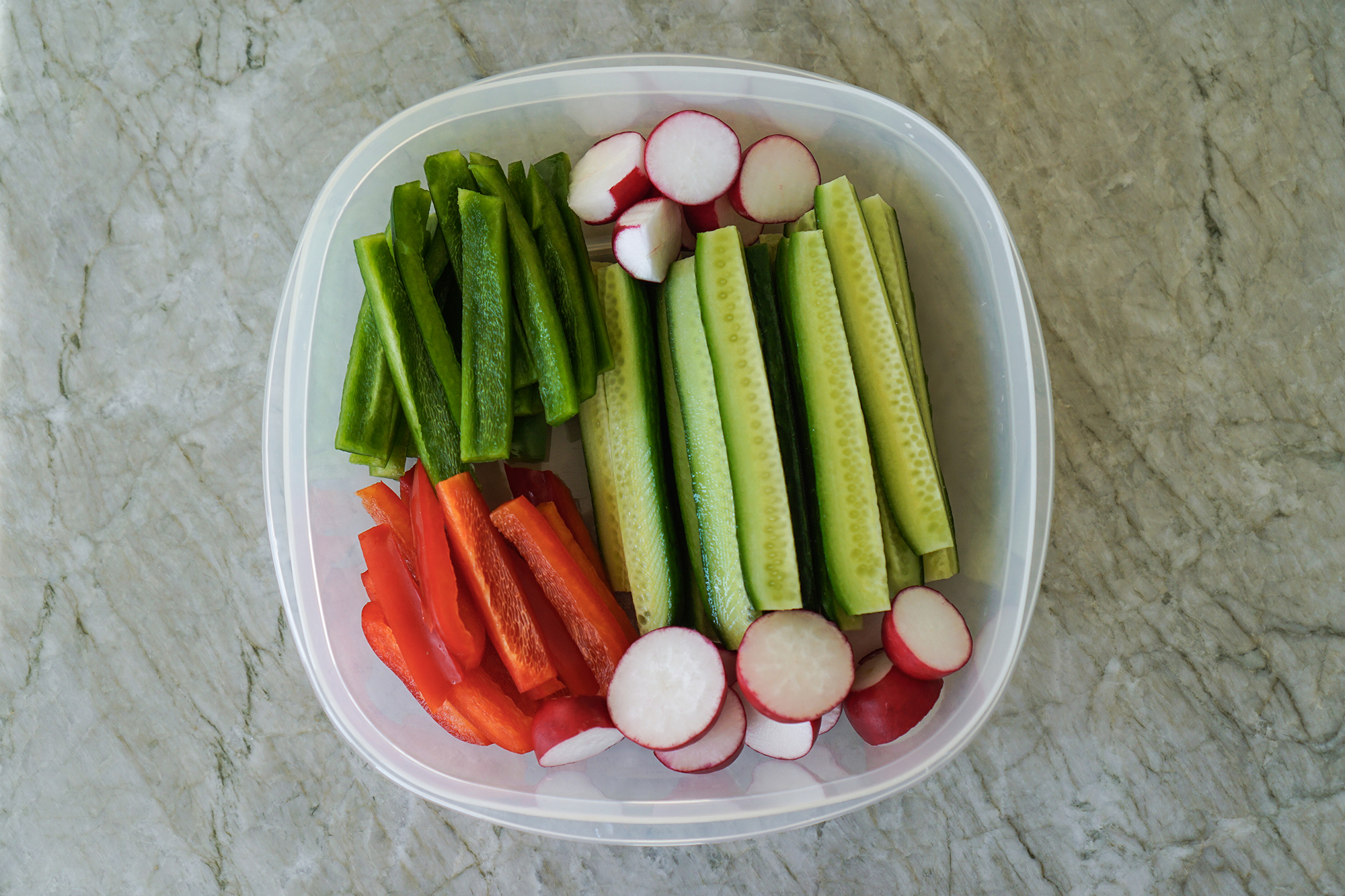
AnastasiaKopa/Shutterstock
3. Go for white wine
Unless you are a die-hard red wine drinker, opt for white wine. Red wines can be heavier and more full-bodied, going to your head more quickly because you’re drinking in a pressurized environment.
4. Don’t be shy with seasoning
A lot of the original taste in plane food is lost in the heating process, which is partly why it tastes so bland. Carry mini bottles of hot sauce or a garlic and pepper seasoning to liven up even the most dire of mashed potatoes.
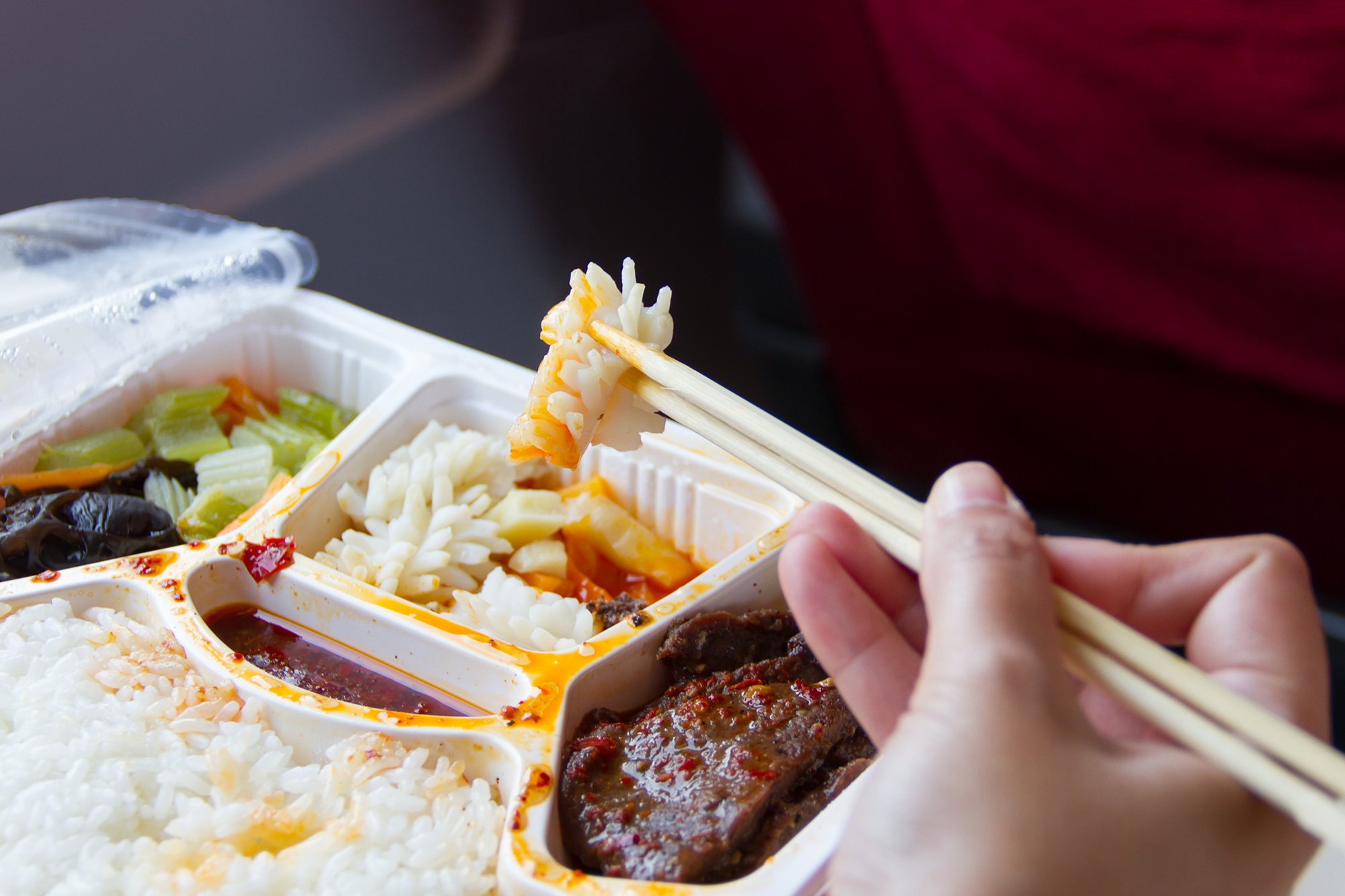
Operation Shooting/Shutterstock
5. Keep an eye on when you’re eating
When you’re snacking while watching a great film, most of us eat on auto-pilot, not realising how much we’re consuming. And on an aeroplane, breaking out the pretzels can be a good way to kill time. What makes it worse is that meals are served according to the flight schedule, not necessarily when you would naturally eat.
6. Curry rules
There are all sorts of terrible things that altitude does to your ability to taste and smell. For instance, we need evaporating nasal mucus to smell and these receptors stop working well in the cabin air. While classic dishes such as chicken chasseur or beef stew may sound tempting, in the air, curry is king. While most ingredients lose their intensity in the altitude, some spices are more intense.
7. Jazz up your drinks
Most experts will ruefully acknowledge that getting drunk on a flight is not great for your body. But if you’d decided to restrict your alcohol intake, that doesn’t mean you can’t make it fun. Along with your snack bags, packing a few slices of lime for your gin or vodka and tonic could be a game-changer. Or dare we say it, a few olives for a makeshift martini.
 Andrew Pustiakin/Shutterstock
Andrew Pustiakin/Shutterstock
8. Avoid gloopy sauces
Sugar expert Sarah Wilson avoids gloopy sauces when she travels because they’re packed full of sugar, which will cause your blood sugar to spike, leaving you hungry and raiding the snack basket in the galley. It also messes around with your metabolism, and if you’re eating at strange times anyway, it’s best to avoid anything that interferes with your digestive system.
9. Bring your own carbs
A lot of carbs served on planes tend to be white rice, bread or pasta, all of which are refined, heavy and will cause your blood sugar to spike, as well as make you feel bloated. Put in a little extra bit of prep and bring your own pot of wholewheat noodles or brown rice. Ask your air stewards nicely for some hot water and you can enjoy them in the air. It’ll taste better and you’ll consume less.
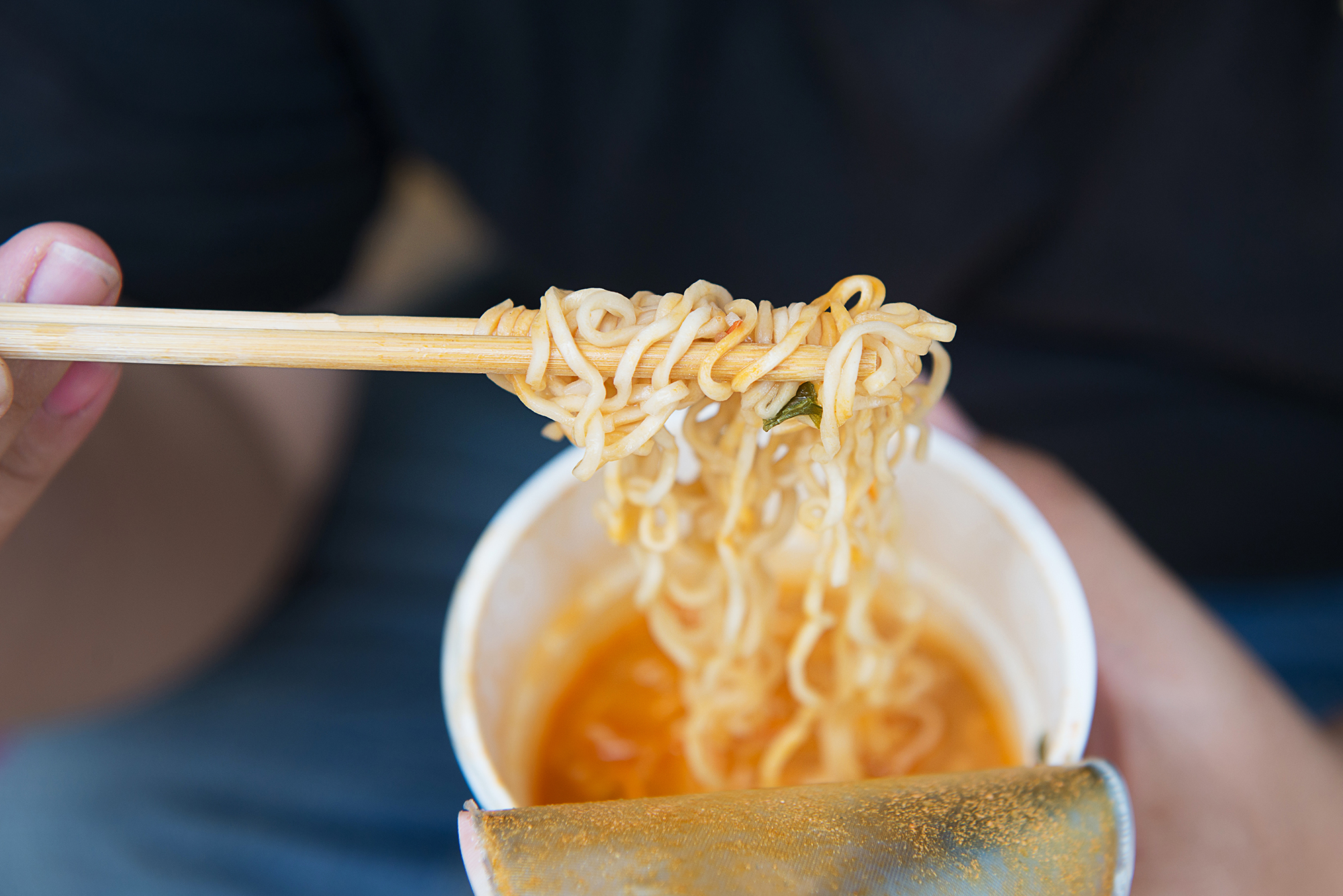
RB-Photo/Shutterstock
10. Umami all the way
Umami is the one aspect of taste that isn’t affected by altitude. It explains why bloody Marys are so popular on a flight because, well, they actually taste like a bloody Mary. Beef, chicken and pork all have a good whack of umami but make sure these aren’t drowned in sauces. Stir-fries or meat cutlets would be better. Tomatoes, mushroom and soy sauce are also very high in umami.
11. Take your own teabags
Teabags are light, don’t take much space and during a flight, they can make all the difference. Take green tea which has plenty of umami and peppermint tea to help with digestive problems. Some airlines are good at stocking herbal teas – especially on flights to Asia – but it can be a bit hit and miss.
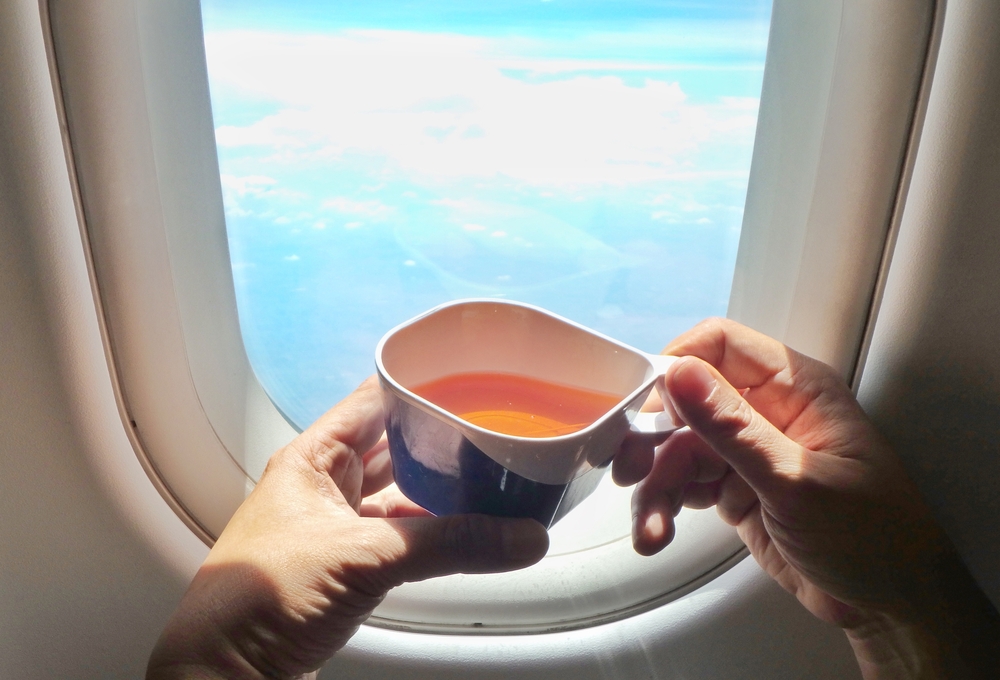 Ding Photo Studio/Shutterstock
Ding Photo Studio/Shutterstock
12. Have a breakfast of champions
As a cooked meal, breakfast is the most problematic on a plane because no airline has managed to nail cooking eggs. They almost always look and taste like they have come from a war rations bunker. That’s before you even get to the sausage. Keep this meal as light as possible – cereal, juice and fruit.
Read more:
Read about the secrets airport officials don't want you to know >
Here's how to upgrade your in-flight experience without paying >
Most Recent
Comments
Be the first to comment
Do you want to comment on this article? You need to be signed in for this feature








